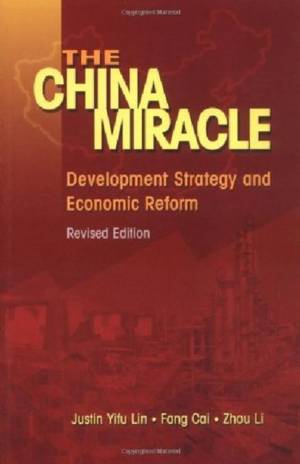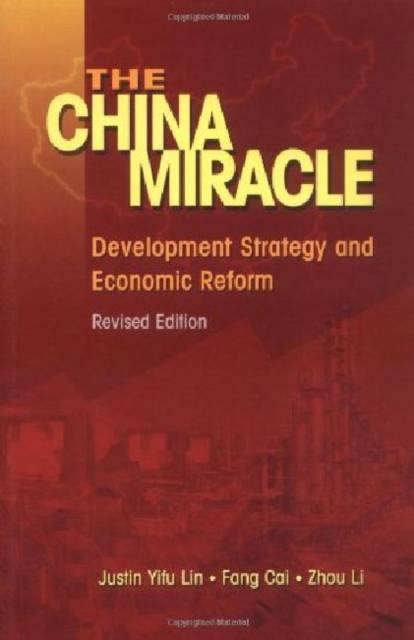
Je cadeautjes zeker op tijd in huis hebben voor de feestdagen? Kom langs in onze winkels en vind het perfecte geschenk!
- Afhalen na 1 uur in een winkel met voorraad
- Gratis thuislevering in België vanaf € 30
- Ruim aanbod met 7 miljoen producten
Je cadeautjes zeker op tijd in huis hebben voor de feestdagen? Kom langs in onze winkels en vind het perfecte geschenk!
- Afhalen na 1 uur in een winkel met voorraad
- Gratis thuislevering in België vanaf € 30
- Ruim aanbod met 7 miljoen producten
Zoeken
The China Miracle
Development Strategy and Economic Reform
Fang Cai, Zhou Li, Justin Yifu Lin
Paperback | Engels
€ 25,95
+ 51 punten
Omschrijving
The tremendous success of China's economic reform, in contrast with the vast difficulties encountered by the former Soviet Union and Eastern European countries in their transition, has attracted worldwide attention. Using a historical, comparative and analytic approach grounded in mainstream economics, the authors develop a consistent and rational framework of state-owned enterprises and individual agents to analyze the internal logic of the traditional Chinese planning system. They also explain why the Chinese economy grew slowly before the market-oriented reform in 1979 but became one of the fastest growing economies afterwards, and why the vigor/chaos cycle became part of China's reform process. The book also addresses the questions: Can China continue its trend of reform and development and become the largest economy in the world in the early twenty-first century? What are the general implications of China's experience of development and reform for other developing and transition economies? In this revised edition, the authors update the data and information in the book and include a new chapter on the impact of China's WTO accession on its reform.
Specificaties
Betrokkenen
- Auteur(s):
- Uitgeverij:
Inhoud
- Aantal bladzijden:
- 432
- Taal:
- Engels
Eigenschappen
- Productcode (EAN):
- 9789622019850
- Verschijningsdatum:
- 11/07/2003
- Uitvoering:
- Paperback
- Formaat:
- Trade paperback (VS)
- Afmetingen:
- 137 mm x 211 mm
- Gewicht:
- 498 g

Alleen bij Standaard Boekhandel
+ 51 punten op je klantenkaart van Standaard Boekhandel
Beoordelingen
We publiceren alleen reviews die voldoen aan de voorwaarden voor reviews. Bekijk onze voorwaarden voor reviews.









